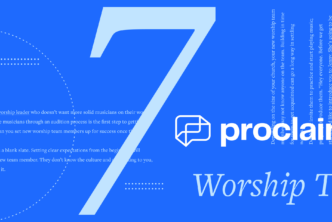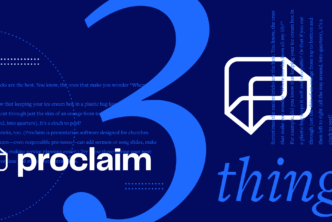Every week—sometimes two or three times a service—we speak directly to the king of the universe while the congregation listens in. That’s a tall order, and it should probably scare us a little more than it does. Thankfully, Jesus set an example in John 11:41–42.
Be prayed up
During his earthly ministry, Jesus prayed many times, but only a handful of them were in public. The example is clear: more than you pray in public, pray in private. Then, when you pray in public, make certain your words are true and your motives pure (Matthew 6:5).
Be others-focused
Jesus prays “on account of the people standing around.” The difference between Jesus and the hypocritical Pharisee in Matthew 6:5? Motive. Jesus prays to build up the faith of those around him; the Pharisee prays to build himself up in the crowd’s opinion.
Be brief
Before Jesus performed one of his most famous miracles—raising Lazarus from the dead—he prayed 26 words. It probably took less than 30 seconds. A long prayer isn’t necessarily better; it’s just longer.
In a sermon about prayer, John Newton said, “The chief fault of some prayers is, that they are too long; not that I think we should pray by the clock, and limit ourselves precisely to a certain number of minutes; but it is better of the two, that the hearers should wish the prayer had been longer, than spend half the time in wishing it was over.”
Let’s remember that prayer is not a production bumper, used to let the guitarist tune. Prayer is a sacred act, a privilege. While it may occasionally result in a smoother service flow, this is not its purpose. Shame on us if we treat it as such.
Be grateful
Jesus uses 9 of those 26 public words to express gratitude. He rarely missed an opportunity to express his thanks, and neither should we.
* * *
Proclaim church presentation software makes it easy to plan smooth services with compelling content and engaging presentations. Download it for free to get started.




